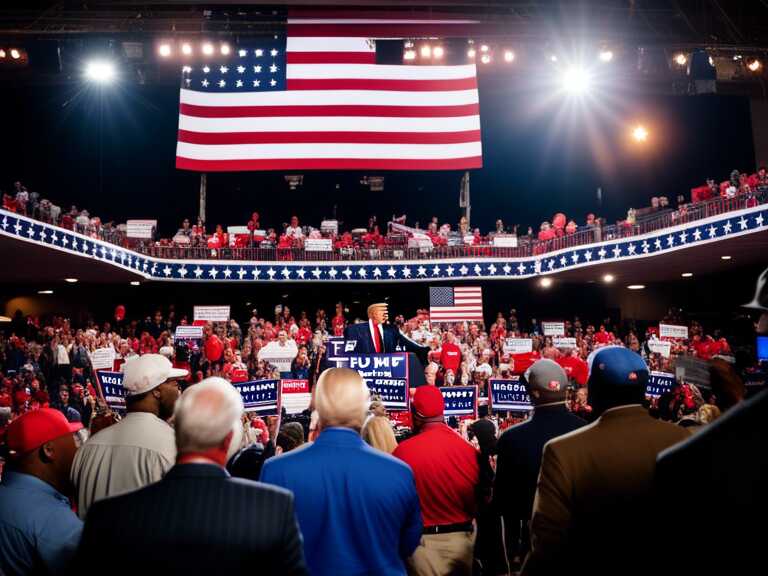
Trump Proposes Eliminating Taxes on Overtime Pay if Reelected, Aiming to Incentivize Workers
Trump proposes eliminating taxes on overtime pay if reelected, aiming to incentivize work and simplify hiring for companies.

During a rally in Tucson, Arizona, former President Donald Trump announced plans to eliminate taxes on overtime pay if he wins a second term in November. The proposal, aimed at incentivizing both workers and companies, has drawn attention and prompted responses from both the Trump and Harris campaigns.
The Proposal and Its Rationale
As part of his additional tax cuts, Trump declared, "I'm also announcing that as part of our additional tax cuts, we will end all taxes on overtime," he stated in Tucson, Arizona. "That gives people more of an incentive to work. It gives the companies a lot... it's a lot easier to get the people," he added.
The former president's proposal seeks to eliminate taxes on overtime hours, providing workers with the prospect of tax-free pay for hours worked beyond the standard 40-hour workweek. This approach aims to motivate individuals to work longer hours while also making it more appealing for companies to retain and incentivize their workforce.
Campaign Responses and Industry Reactions
Following Trump's announcement, both the Trump and Harris campaigns were approached for further details and comments on the pledge. However, they did not provide immediate responses, leaving the proposal's implications open for further discussion and debate.
Changing Labor Policies and Economic Considerations
Trump's announcement comes at a time when discussions around labor policies, taxation, and economic incentives are prominently featured in the political discourse. The proposed elimination of taxes on overtime pay represents a significant departure from established labor regulations, particularly those outlined in the 1938 Fair Labor Standards Act.
This act established the 40-hour workweek and outlined overtime pay standards, mandating that workers covered by the law must receive at least 1.5 times their regular pay rate for overtime hours. The Harris campaign has actively pushed for expanding the Child Tax Credit, aiming to provide a $6,000 tax cut to families with newborn children. Additionally, remains committed to ensuring that individuals earning less than $400,000 a year will not face increased tax burdens.
Potential Implications and Considerations
As the political landscape evolves and the November election approaches, Trump's proposal to eliminate taxes on overtime pay adds a new layer of complexity to the ongoing discourse on labor policies, taxation, and economic incentives. The potential implications of this proposed change resonate with both supporters and critics, sparking discussions about its impact on workers, employers, and overall economic dynamics.
Share news















